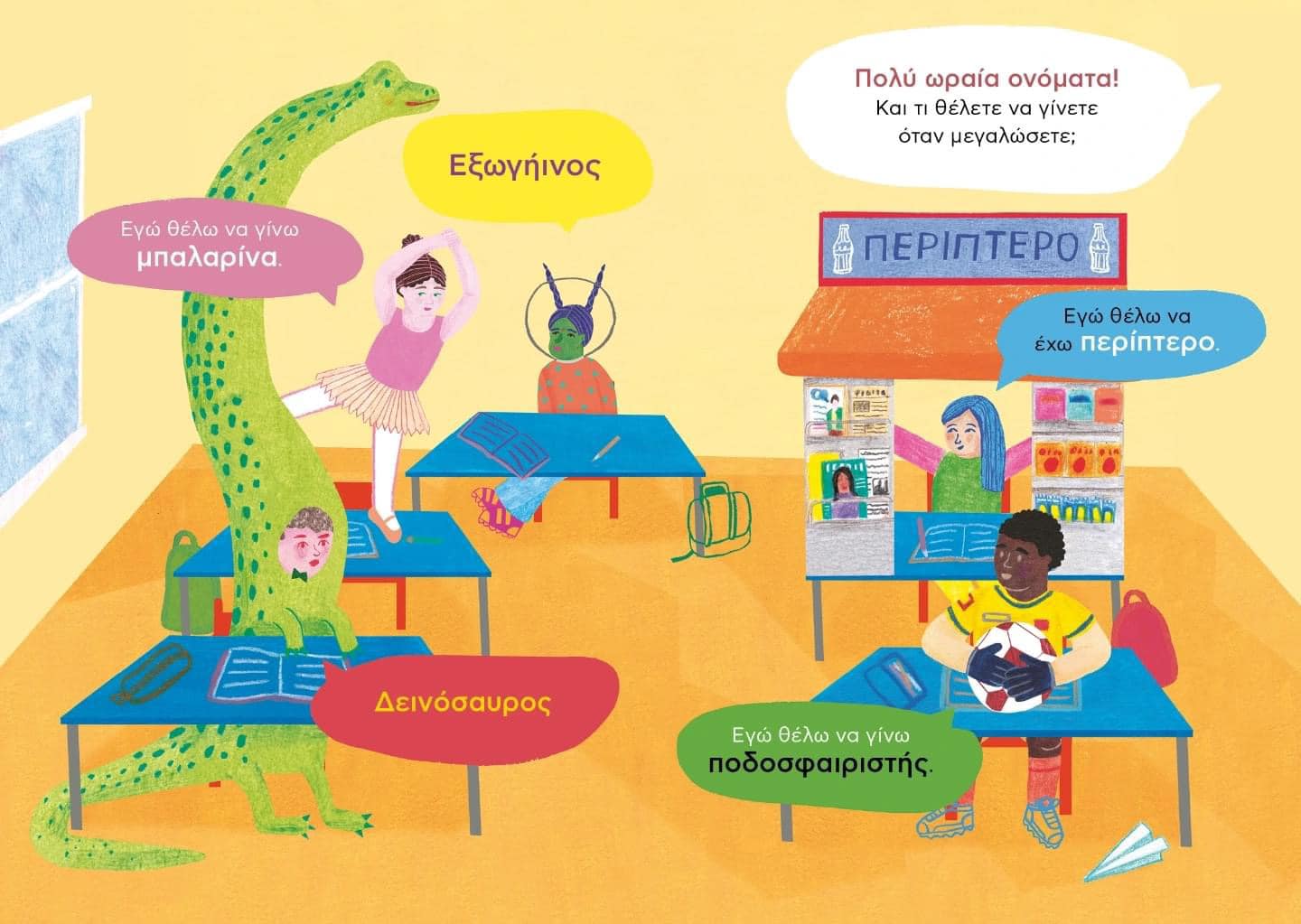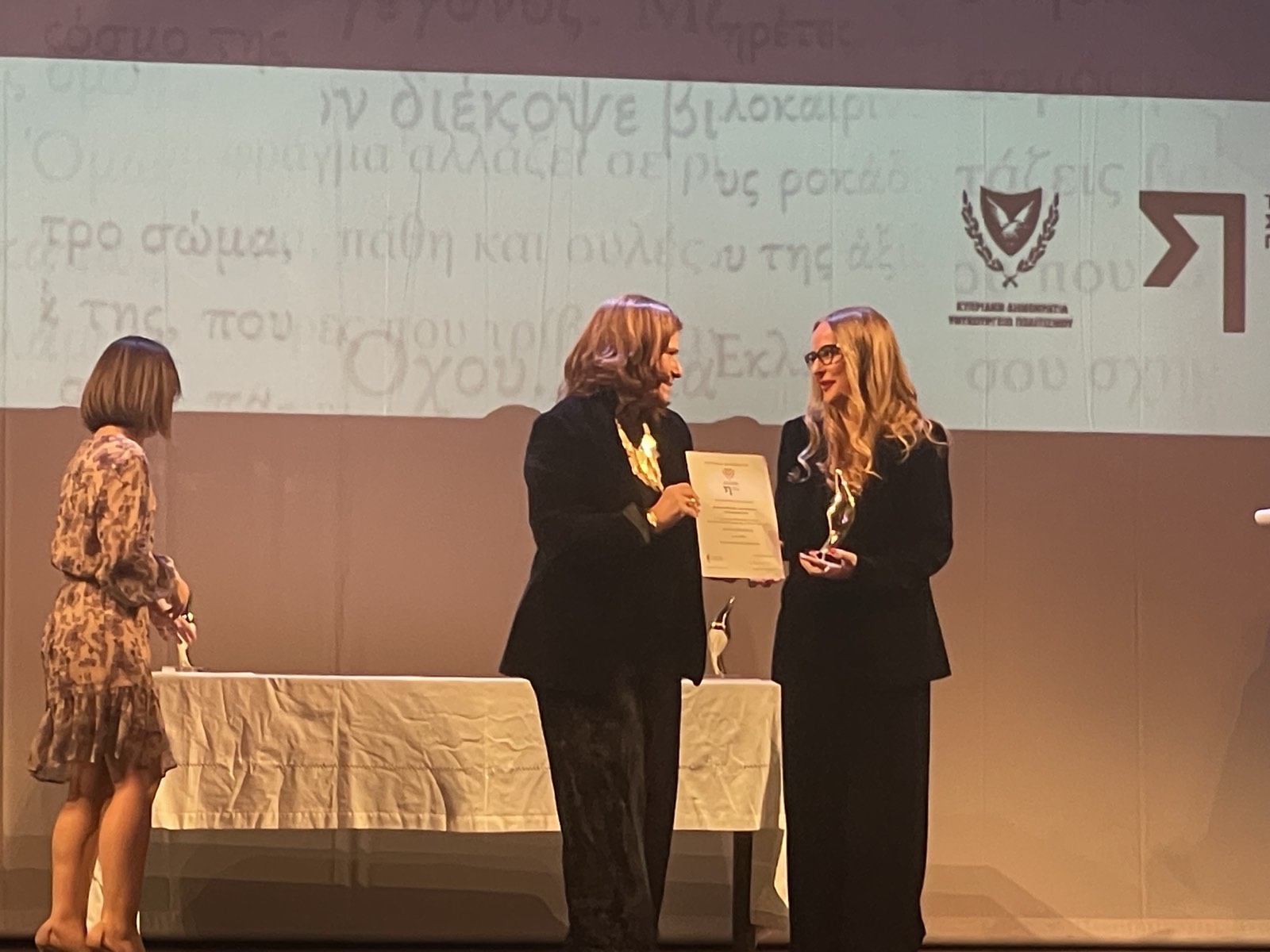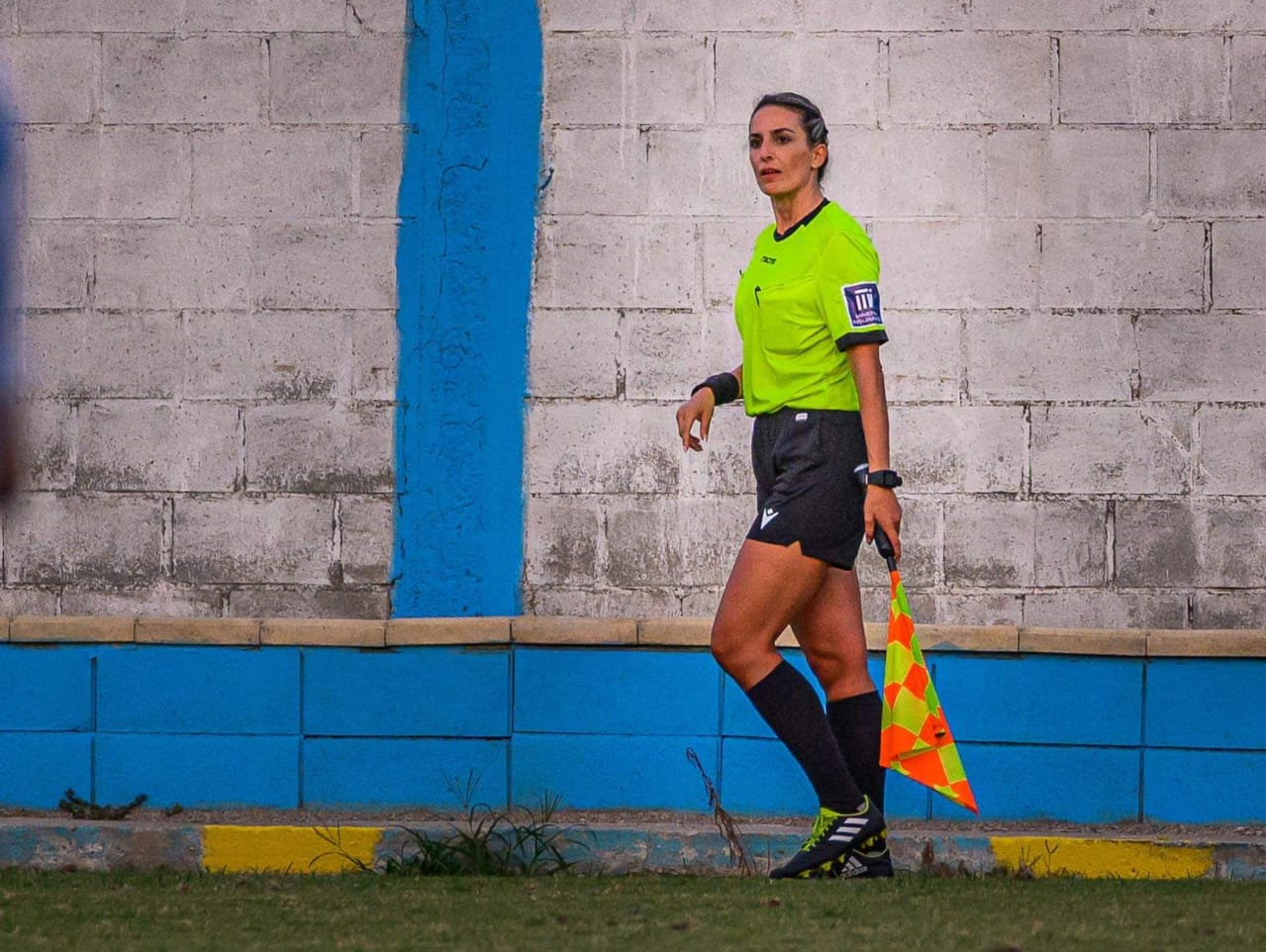A teacher in Cyprus is putting the doubters to shame and challenging children to rethink what is possible
Special education teacher by day, football referee by weekends and afternoons. This dual profession is not groundbreaking, but in Cyprus if you are a woman on the football field it is certainly unusual. Why? Because despite decades of progress, some spaces remain stubbornly male.
But change is happening. When women unite, they bring game-changing stories to light. Doris Myrianthea, the teacher who swaps textbooks for red cards has had her stpry immortalised in an award-winning children’s book Ta Papoutsia tis Daskalas (The Teacher’s Shoes), which was recently honoured at the island’s 2024 National Literature Awards.
Written by Despina Eracleous and illustrated by Chryso Charalambous, the book challenges gender stereotypes, encouraging children – girls and boys alike – to dream. It follows a teacher who shocks her students when they discover she’s also a referee, a story rooted in Doris’ real-life experiences and the Cypriot reality that Despina wants to change.
“How many statues of women have you seen in our city?” Nicosia-based Despina asks. “Public monuments shape how we see gender roles, just like media coverage does. How many articles have you read about female referees in Cyprus? Have you ever seen a special feature on them on TV?”
As an educator, Despina has heard boys shout the insult you “run like a girl” and claim that “football is for boys.” When she learned about Doris’ struggles with sexist comments, verbal harassment and bullying, she knew she had to write a story tackling gender bias.
Doris, who has spent 13 years on the field in Cyprus, has seen it all. “When I started, there were only four female referees in all of Cyprus, and we weren’t accepted at all,” she recalls. “Men saw football as their territory, and we were intruding.”

The hostility didn’t just come from those on the field – she’s endured degrading comments from the stands, including sexist remarks about women’s bodies and roles. But she refused to be discouraged. In 2015, after years of training, she became an international football referee.
“I don’t give up easily,” she says. “When I started, I told myself I’d either become great at this or quit. But quitting was never really an option. I was determined to prove that women can do this too. Gender doesn’t determine ability, performance, or decision-making. When girls find out that I am a football referee, their eyes sparkle. If I understand the game, I can officiate just as well as any man.”
The book also champions inclusivity. Its illustrations depict a diverse classroom, and its message goes beyond the typical Cypriot holy grail – for children to become doctors or lawyers.
In the book, Despina tells how it all began – in a classroom when she invited Doris, who was working at the same school at the time – to speak about her role as a referee.
“The class was excited!” remembers Despina. “Especially the boys who were jumping up and down. I asked them to draw a referee so that we could put their drawings on the wall to decorate the room. All of them drew men.”
When Doris walked into the classroom, there was confusion. “You should have seen the children’s faces,” Despina remembers, “Priceless! Some wouldn’t move; others started to shout ‘That is Ms Doris. Why are you lying Miss?’ Some boys were angry and one boy started to cry. They didn’t believe me when I kept telling them that Ms Doris was the referee.”
After hearing Doris’ story and seeing photos and videos of her on the field, the children were asked to draw pictures again – of firefighters, pilots, and footballers. This time, they drew both women and men.
This shift in perspective is one of the book’s most powerful takeaways. The inclusion of the children’s original drawings makes it even more impactful. And thanks to its vibrant, expressive illustrations, Ta Papoutsia tis Daskalas isn’t just a lesson – it’s an invitation for all readers, young and old, to rethink what’s possible.

The title itself drives home the book’s message. “I think is very important to walk in someone’s shoes,” says Despina. “To develop empathy, acceptance, respect and mutual understanding, especially in these days where there is conflict all around us. Shoes don’t determine a woman’s identity and abilities.”
At the time of the book’s release, a controversy erupted when an education ministry official claimed it was unacceptable for female gym teachers in high schools to wear high heels. The remark made headlines, prompting another ministry official to step in and clarify that this was not an official stance.
Stories like Doris’, and books like Ta Papoutsia tis Daskalas, are testament to women who have defied the odds – and to every child with a dream.
“The message is clear,” Despina concludes. “If you work really hard you can be whatever you want, no matter what others say. This is especially important today, when femicides, violence against women and gender inequality, pose a huge violence of human rights. Books like these can empower young girls and can be used as a vehicle for social transformation.”
Find the book in Parga and Soloneion bookshops or order it online






Click here to change your cookie preferences